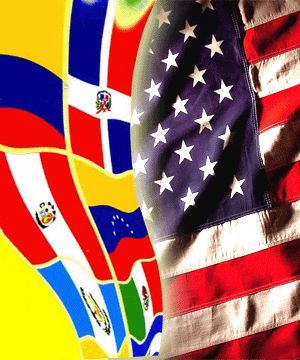Census Labels Fuel Latino/Hispanic Debate

Hispanic and Latino are terms used, and often misused, almost exclusively within the United States. They are frequently used interchangeably despite the fact that their definitions are entirely different. Race and ethnicity questions on census forms within the U.S. have evolved at a rate that has most people at least a little confused.
According to the United States Census Bureau, “Persons of Hispanic origin, in particular, are those who indicate that their origin is Mexican-American, Chicano, Mexican, Mexicano, Puerto Rican, Cuban, Central or South American, or other Hispanic.” The term Hispanic has been used by the bureau since the 1970 census and currently accounts for a population in America exceeding 50 million people. This is 1 out of every 6 people in America today, speaking a language that is the second most widely spoken native language in the world after Mandarin, Chinese.
Hispanic Heritage Month (Sept. 15th through Oct. 15th), according to the bureau, celebrates, “The culture and traditions of those who trace their roots to Spain, Mexico and the Spanish-speaking nations of Central America, South America and the Caribbean.” This is fairly broad range of cultures, effectively grouping together nearly forty countries, not all of which are even on the same continent.
Hispanic is an ethnicity not a race, and is comprised of people of many races including White, Black, Native Indian, and even Asian.
The word Latino, on the other hand, refers to persons from only Latin America. This term appears easier to understand because it refers to people from a specific geographical location as opposed to those speaking a particular language. It’s not as simple as it might seem however. The Puerto Rican publication, El Boricua explains the term further saying,
“People from Latin America are all Latin but not all are Hispanics. Brazilians speak Portuguese, which makes them Latin but not Hispanic.”
Currently the U.S. census asks if a person is Spanish/Hispanic/Latino, grouping together all the terms in an apparent attempt not to alienate anyone considering themselves one and not the other. There is an increasing push to do away with the ambiguity of these terms altogether and adopt the more succinct descriptions of, Mexican-American, Spanish-American and so on. This switch, while accounting for the diversity that the term Hispanic largely overlooks, might make future lists of census questions unbearably long.
During the course of writing this article I spoke with several Spanish-speaking American-born people, and asked them their opinions of what term they preferred. The answers I received were diverse. While no one I talked to minded the term Hispanic, a few made the point that they couldn’t be called Latinos because, their parents, not they themselves were born in Latin America. In terms of race, some considered themselves white and others did not.
Adopting the designation Hispanic-American, like the terms, Asian-American and African-American might solve the issue altogether, by doing away with the non-interchangeable usage of Latino and Hispanic. At least it might make the whole question a bit less confusing than it currently is.




